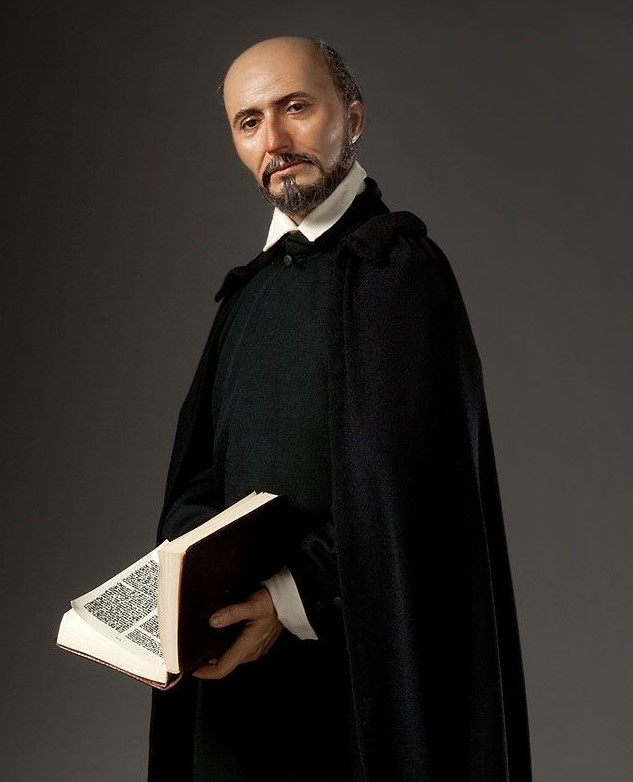…telling himself (St Ignatius) that he would neither eat nor drink until God came to his rescue or he saw himself to be at the point of death; because if he were to find himself so far in extremis that unless he took food he must forthwith die…This resolution he made on a Sunday, after receiving Holy Communion, and all that week he put nothing in his mouth, persevering at the same time in his customary exercises, and likewise attending the divine offices and making his prayer on his knees, even at midnight, etc. He was accustomed to tell his confessor in minute detail everything he did, so when the following Sunday came round and it was time for him to go to confession, he let him know also that he had eaten nothing during that week. The confessor¹ ordered him to break his fast and, though he felt strong enough, he nevertheless obeyed, to find himself free from scruples that day and the next. But the third day, Tuesday, while he was at prayer, he began remembering his sins and, as if he were threading beads, went on thinking of sin after sin of his past life, and it seemed to him that he was under obligation to confess them once more. At the end of this process, he began to feel a loathing for the life which he led, and a strong impulse to abandon it. With that, it pleased the Lord that he awoke as if from a dream. As he already had some experience in the discernment of spirits from the lessons which God had given him, he began to examine by what means that spirit [of scrupulosity] had come upon him; and so he resolved in full clarity of mind not to confess anything of the past ever again. From that day on he remained free from scruples such as had tormented him, holding it for certain that our Lord had been pleased to deliver him by His mercy.”
‘Saint Ignatius of Loyola: The Pilgrim Years 1491-1538’


